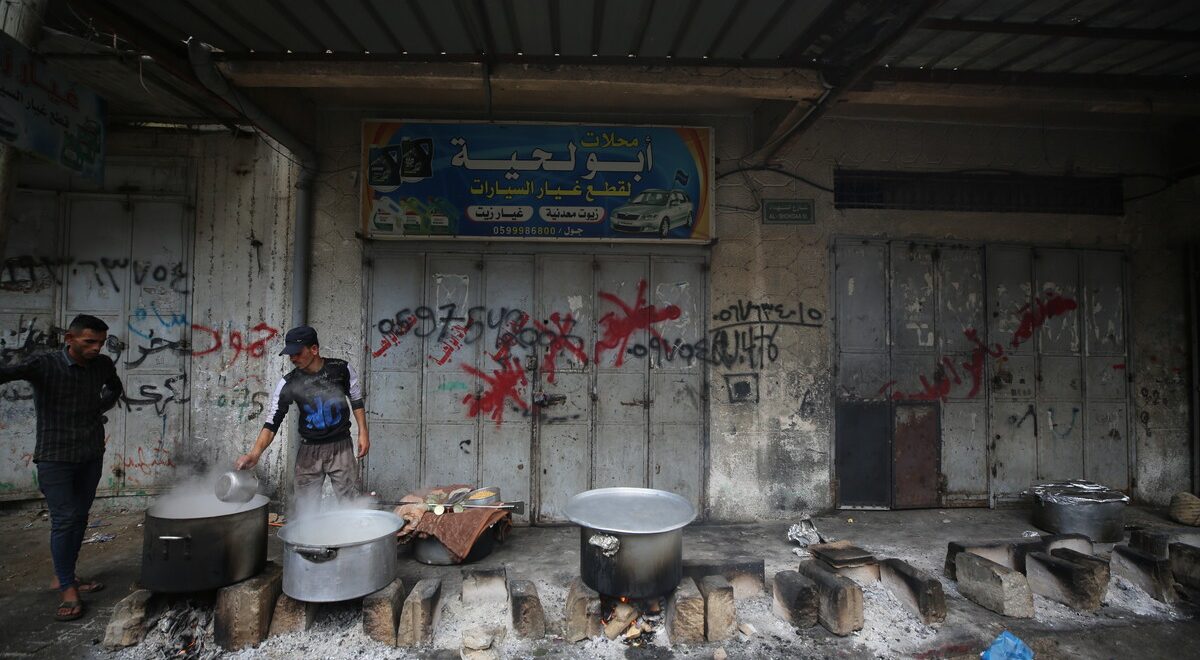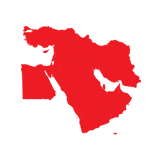Trucks carrying food, water, and medical supplies are preparing to enter Gaza through the Rafah crossing on Friday. However, the limited aid supplies preparing to enter do not meet the acute, life-threatening, humanitarian needs on the ground. In addition, the besieged territory also desperately needs fuel for hospital generators to treat some of the 12,500 injured people and patients with chronic health conditions at risk of dying from treatable illnesses and to power pumping and treatment plants to provide safe drinking water. With civilian infrastructure destroyed and health services on the brink, huge concerns exist that this aid is grossly insufficient.
Riham Jafari, Communication and Advocacy Coordinator with ActionAid Palestine, describes why more aid is needed:
“Many more people will die if hospitals in Gaza, overcrowded with casualties from the continuous bombing and airstrikes, don’t receive enough fuel, medical supplies, and life-saving aid.”
The U.N. has warned that Gaza needs aid deliveries of at least 100 trucks a day. The agreement to allow only twenty trucks of aid into Gaza is nowhere near enough relief for a desperate population of 2 million living under constant bombardment with no essential aid deliveries for almost two weeks. ActionAid currently has staff in Cairo working to arrange the procurement of food, non-food essential items, hygiene and dignity kits for women and girls, and medical supplies. But as of today, there is still no humanitarian corridor open for organizations like ActionAid to provide life-saving relief to the people of Gaza.
Riham continues:
“Insufficient aid will cause public health disasters and starvation as patients with chronic diseases and pregnant women and their infants will be unable to receive the medical care and nutrition they need. It will endanger their lives. Water and electricity plants will be unable to operate without fuel, and lack of clean water will cause many diseases. Without electricity, incubators, dialysis machines, and other vital health support systems will be unable to run, and a lack of food will contribute to diseases and malnutrition. We are nearing winter, and shelter items are urgently needed, such as mattresses and tents. Humanitarian corridors should be opened now to huge amounts of humanitarian assistance so that more lives can be saved – we know that the 20 trucks of aid currently promised is simply not enough.”
ActionAid is working with local partners in Gaza who are doing their utmost to provide food and other relief items to families that they can reach. Still, access to supplies is limited, and transportation to the shelters is challenging and dangerous for those who are working on the ground.
Heba, spoke to ActionAid from a UNRWA shelter in Gaza, about the realities of living in Gaza now:
“The situation in the Gaza Strip is very bad. People have been killed. May God have mercy on them, but the rest will die because of hunger. There is no food in the supermarket. We must wait in line for bread. We go at six in the morning and wait until the afternoon to get it. This is if you even manage to get some bread, of course.
“The water we drink is not suitable for human consumption. Even animals can’t drink it. But we have no other choice. This is the only available water. We need to drink. Our children cry and scream because of hunger and thirst.
“We will die. People have been killed, and we will die because of hunger and fear. We are appealing. We have appealed to every human being with a conscience. But now we appeal to God.”
Despite the dire circumstances, our local partners, such as Al Awda Hospital, have persistently delivered vital services, while others, like WEFAQ, are providing support to the thousands displaced and currently seeking shelter.
Shouq Al Najjar, coordinator at ActionAid partner Maan Development Center in Gaza:
“Thousands of people sought refuge in the south, but safety is elusive. Bombings persist all over the Gaza Strip. They are targeting civilians with no warning, causing heartbreaking tragedies. Buildings are reduced to rubble, and thousands of homes have become unlivable. Every day, it’s a struggle for the basics. There is no running water, electricity, or clean water, and now bakeries are stretched to the limit. They cannot meet the demand for bread. The situation at the U.N. schools is even more desperate. They’re overcrowded. There are no basic services, no essential services. There are no blankets, no mattresses, and no hygiene services. Hospitals could stop operating at any hour now as there’s no electricity or fuel to power generators. Anyone with a sense of humanity should not keep quiet about what is happening in Gaza.”
ENDS
For media requests, please email Christal.James@actionaid.org or call 704 665 9743.
About ActionAid
ActionAid is a global federation working with more than 15 million people living in more than 40 of the world’s poorest countries. We want to see a just, fair, and sustainable world in which everybody enjoys the right to a life of dignity and freedom from poverty and oppression. We work to achieve social justice and gender equality and to eradicate poverty.


